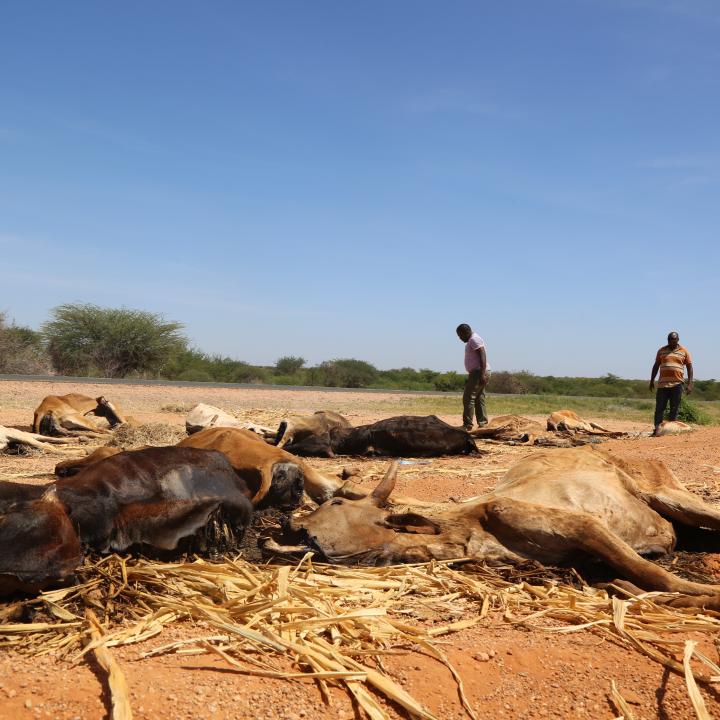The 23rd Conference of the Parties (COP23) of the United
Nations Framework Convention on Climate Change (UNFCCC) held in Bonn, Germany
from November 6 -17 2017, ended with the debut of the United Cities and Local Governments of Africa (UCLG Africa),
reports NaijaAgroNet.
This, NaijaAgroNet reports provided the framework for the
launch of the UCLG Africa (www.AfriqueLocale.org/en) Climate Task Force and the
presentation of its members to the political authorities and the general
public.
The official launch of the UCLG Africa Climate Task Force
was held in Bonn on Tuesday November 14, 2017 under the chairmanship of His
Excellency Mr. Barnabé Dassigli, Minister of Decentralization and Local
Governance of Benin, Chairman of the Specialized Technical Committee N° 8 of
the African Union, in the presence of representatives of the first institutions
that volunteered to join the Task Force.
These were notably:
• The
African Development Bank (AfDB), represented for this purpose by Ms. Louise
Helen BROWN, Climate Change Task Manager, Coordinator of the AfDB Fund for
Climate Change in Africa;
• The West
African Development Bank (BOAD), represented by Mr. Bio Sawe, Director of
the Environment and Climate Finance;
• The Local
Government Capital Investment Fund of Morocco (FEC);
• The
Special Fund for Equipment and Inter-Municipal Intervention of Cameroon
(FEICOM), represented by Mr. Côme Awoumou, Deputy Director of Cooperation and
Partnership;
• OECD,
represented by Ms Marie Trémolières, Senior Policy Analyst at the Sahel and
West Africa Club (SWAC) of OECD;
• The
Environment Agency for Territorial Development of the Presidency of the
Republic of Benin, represented by Mr. Jean Claude Grisoni Niaki, expert in
resource mobilization and structuring of projects for Climate Finance;
• The 4C
Agency of the Ministry of the Environment of Morocco, represented by its
Director, Mr. Mohamed Nbou;
• Cadi
Ayyad University of Marrakech, represented by Professor Fatima Arib, Sustainable
Development and Major Projects Task Manager at the Presidency of the
University;
• The
National Associations of Local Governments in Africa, represented by Ms.
Florence Radzilani, Mayor of the Municipality of the District of Vhembe (South
Africa), Climate and Environmental Planning Officer at the South African Local
Government Association (SALGA);
• NGO
ENERGIES 2050, represented by its CEO, Stéphane Pouffary.
Jean Pierre Elong Mbassi, Secretary General of UCLG Africa,
stated the intention of the Task Force to bring together, within the same
ecosystem, the various stakeholders working with climate issues. This is to
enable them to support local governments in Africa in the implementation of
NDCs and in the access to climate finance and most notably the Green Climate
Fund. This is open to all those who wish to join it who can do so by applying
to the General Secretariat of UCLG Africa.
On behalf of the African Ministers of Public Service, Urban
Development, Local Governments and Decentralization, the Hon. Minister Barnabé
Dassigli of Benin, Chairman of the Specialized Technical Committee N° 8 of the
African Union, commended UCLG Africa for its wonderful initiative, supported by
STC N° 8. He expressed confidence that the UCLG Africa's Climate Task Force
would have a significant impact on the engagement of African local governments
in the implementation of the Paris Agreement and pointed out that within the
same support platform for local governments, development banks, institutions
specializing in the financing of local governments, technical support agencies
for local governments, academic and research institutions, associations of
local governments and NGOs active in the field of climate, was a commitment to
the synergy of the different stakeholders around the Climate Agenda. Hon.
Minister Dassigli confirmed that the African Union's STC N° 8 also supports
requests made by local and regional elected officials during the preparatory
Forum for COP 22 held in Cotonou in September 2016, especially with regard to
the urgency of establishing a capacity building and technical assistance
program for local governments to enable them to develop climate plans and
prepare eligible funding applications for the Green Climate Fund; as well as
for the recognition of UCLG Africa as an "Implementing Partner" of
the Green Climate Fund.
The role of territories was recognized as essential for the
realization of NDCs (Nationally Determined Contributions). Local policy choices
in terms of infrastructure, equipment and basic service delivery methods have
made an impact on energy efficiency and greenhouse gas emissions. Priorities
for elected officials include giving a climate perspective to the everyday
actions they carry out. There is also a need to build their capacities to measure,
report and verify the contribution of their actions and policies in the
reduction of emissions and adaptation to the effects of climate change. This
requirement for the Measurement, Reporting and Verification of climate actions
(MRV) is one of the requirements of the Paris Agreement and one of the
conditions to be met in order to access the Green Climate Fund. The National
Associations of Local Governments will be required to advocate with the
representatives of the NDC Partnership and the focal points of Green Climate
Fund in their respective countries.
Isaac Oyimah/GEE
... Linking agrobiz, sustainable environs, people & technology




%20flanked%20by%20Resource%20persons%20and%20participants%20at%20the%20)











